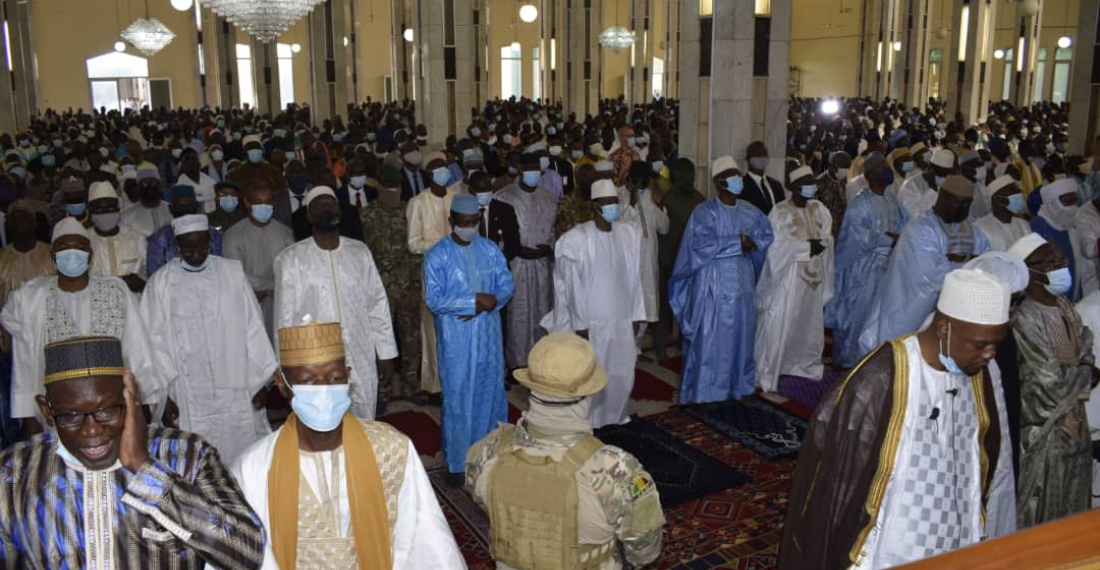Mali's transitional president, Colonel Assimi Goïta, was targeted on Tuesday (20 July) by a knife attack during the Muslim rite of Eid, the feast of the Sacrifice, at Bamako's Grand Mosque. "At least one person attempted to attack him with a knife in the Grand Mosque of Bamako", the president's services told Agence France-Presse.
The same source added that the president was "safe and sound". When asked whether they would qualify the act as an “assassination attempt” of the president, his services replied, “Yes, absolutely”.
The attack took place after the prayer, as the imam walked towards the exit of the mosque to slaughter the sheep.
The attacker was immediately subdued by close security, Mali's presidency said in a statement on its Twitter account. It also mentioned that investigations are in progress.
In office since 24 May, Assimi Goïta led two coups in Mali in less than a year. Following his most recent coup, Goïta faced disapproval from the international community, civil society and regional organisations. The president assured that he and his new government would keep the commitment to hand back control to civilians after the elections scheduled for 27 February 2022.







